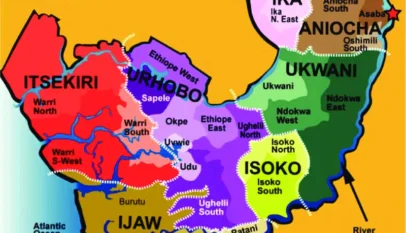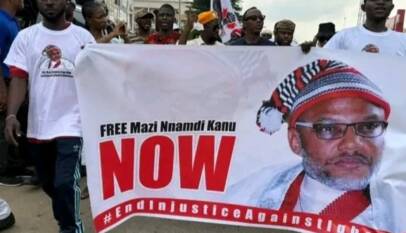By Sodeeq Kamsela with agency reports
The Middle East and international community have been put on red alert as the escalating tension between Israel and Iran erupts into direct military confrontation.
Israel launched a sweeping preemptive strike against Iran’s nuclear infrastructure and the army leadership, in an operation Codenamed Operation Rising Lion, in an assault that targeted over 100 sites across Iran, including nuclear enrichment facilities at Natanz, Fordow, and Khondab, as well as missile bases in Khorramabad.
The offensive marks the most significant escalation between the two long-time adversaries and has triggered an immediate regional crisis.
Among the high-profile casualties reported by Iranian media are Islamic Revolutionary Guard Corps (IRGC) commanders Gen. Hossein Salami and Gen. Mohammad Bagheri, along with top nuclear scientists Fereydoon Abbasi and Mohammad Mehdi Tehranchi.
Israel’s defence establishment confirmed that over 200 fighter jets and advanced standoff munitions were deployed in the attack, coordinated with satellite intelligence and real-time surveillance. The Israeli government described the operation as a necessary act of national defence to prevent Iran from acquiring nuclear weapons, stating the campaign would continue “as long as necessary.”
Iran responded swiftly by launching more than 100 drones targeting Israeli cities and military sites, most of which were intercepted outside Israeli airspace, with reports of successful neutralisation by air defences over Iraq, Jordan, and along Israel’s eastern borders.
In response, Israel declared a nationwide state of emergency, halted air travel, activated its Iron Dome defence system, and urged citizens to remain in shelters. Several countries across the Middle East, including Jordan, Iraq, and Lebanon, shut down their airspace amid fears of a broader regional war.
OIL PRICES SPIKE, ENERGY EXPERTS WARN OF SUPPLY DISRUPTION
Global oil prices surged over 8% as markets reacted to the threat to oil shipping routes in the Persian Gulf, particularly the Strait of Hormuz, which handles a third of the world’s seaborne crude. Gold prices spiked while regional stock markets fell sharply.
Energy analysts warned that prolonged instability between Israel and Iran could have severe implications for global supply chains and international security.
Israeli Prime Minister Benjamin Netanyahu called the strikes “a fight for Israel’s survival” and reiterated the country’s determination to prevent Iran from crossing the nuclear threshold. In Tehran, Supreme Leader Ayatollah Ali Khamenei condemned the assault as “a declaration of war” and vowed “severe retaliation.”
Iran’s Revolutionary Guard warned that its response would be multi-layered, involving not only drones and ballistic missiles but also cyberattacks and proxy warfare via Hezbollah and other regional militias.
WE ARE NOT INVOLVED – TRUMP
The United States denied any involvement in Israel’s operation but confirmed it had placed its forces in the Middle East on high alert. Secretary of State Marco Rubio stated that while Washington was not notified in advance of the Israeli strikes, it remains committed to protecting American personnel and allies. The U.S. has already begun evacuating diplomats and non-essential staff from embassies in Iraq, Bahrain, and the United Arab Emirates.
The escalation comes just days after the International Atomic Energy Agency (IAEA) issued a formal censure of Iran for obstructing nuclear inspections and expanding uranium enrichment to near-weapons grade. Iran, in turn, accelerated its enrichment efforts and threatened to withdraw from the Non-Proliferation Treaty, sparking fears that it was on the verge of a nuclear breakout. Diplomatic negotiations between Tehran and Western powers have since collapsed.
Nations including Saudi Arabia, Qatar, Turkey, Russia, and China have called for immediate de-escalation. Emergency meetings are underway at the United Nations and the Arab League as fears mount over a broader regional war that could engulf Lebanon, Syria, Iraq, and Yemen. Hezbollah has issued a warning of “full military solidarity” with Iran, while Western intelligence agencies are monitoring potential retaliation against Israeli or U.S. assets abroad.
Travel advisories have been issued by several Western governments for Israel, Iran, Lebanon, and Iraq, and commercial airlines have begun rerouting flights to avoid Middle Eastern airspace. Observers warn that the next 48 to 72 hours are critical in determining whether the conflict can be contained or will evolve into a prolonged and devastating regional war.
This rapidly unfolding Israel–Iran conflict has already altered the global geopolitical landscape. With nuclear tensions at their highest in decades, the international community is on edge, watching closely as two of the Middle East’s most powerful nations inch closer to the brink of full-scale war.

































